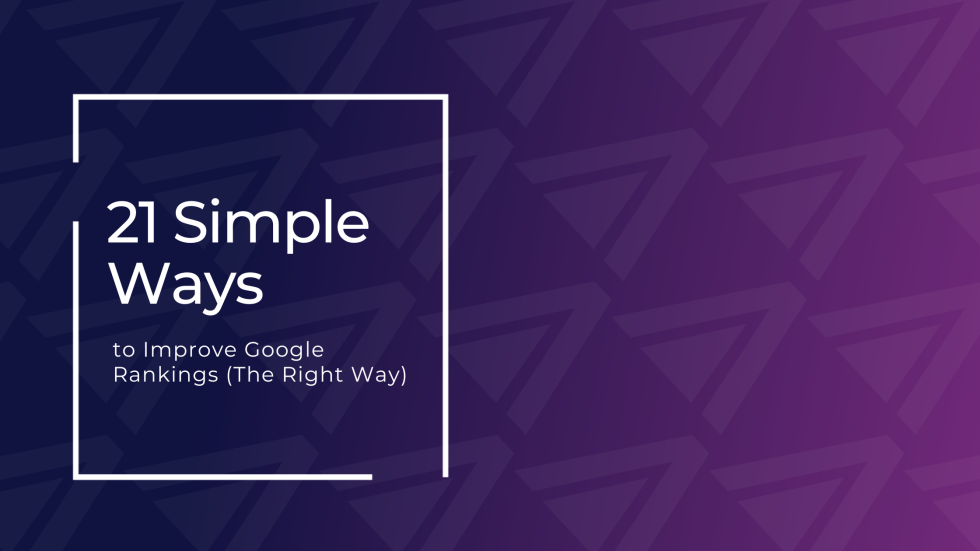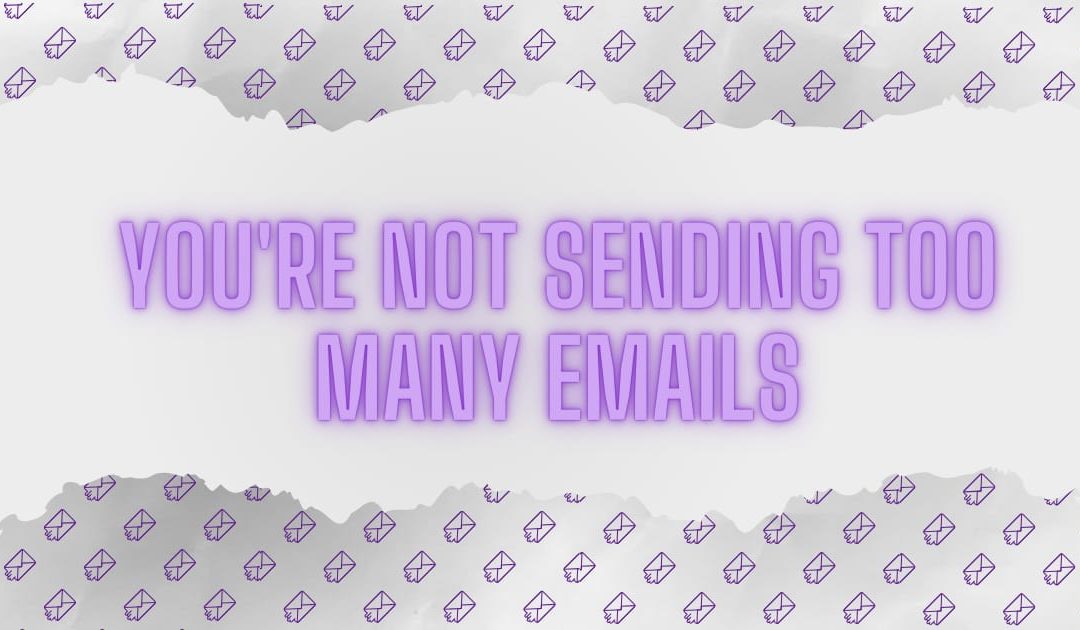You know that moving your pages up just one or two spots on Google rankings would make a huge difference for your business.
But some advice you find for improving your Google rankings sounds like it was written for someone who mastered in Computer Science.

So what’s a normal human being to do?
In this article, we’ve collected the best SIMPLE pieces of advice for improving your search rankings.
You can employ these on your site without any kind of special training or a background in SEO.
Before we dive into the list, it’s good to know just HOW much improving your rankings will impact your website traffic.
These stats make that very clear.
Do Google Search Rankings Matter?
For starters, Google gets 3.5 billion searches on its website every single day. That’s a ton of traffic to be had.
The way to win some of it, of course, is to show up high enough on the list for some of those searches that you get people to click on your website.
On average, over half of any website’s traffic comes from organic search. Simply put: it’s something we as businesses just cannot ignore.
Now, how does your rank affect the amount of traffic you get?

The SEO blog Backlinko did a huge study to answer this question, and here’s what they found:
- The #1 result in a Google search gets an average click-through rate of 27.6% (CTR is one of the important KPIs you should track for your business)
- In comparison, the CTR at the #2 position drops down to 15.8%, and positions 6-10 get less than 5% of the clicks
- Moving up just one position increases clicks by an average of 32%
- And a paltry 1% of searchers clicked on a second-page result
Bottom line: if you’re gonna rank, you want to be in the top 10. And if you can, moving up even just one spot has a big impact.
So here are the top ways to improve your search rankings, in plain English:
21 Simple Ways to Improve Google Rankings
1. Use an image optimizer on your site. Smaller images makes your pages load faster, which is one of the factors Google looks at.
2. Choose a mobile-friendly website theme. Around 60% of organic searches are done from a mobile phone, and Google favors websites that are mobile-friendly.
3. Keep your readers scrolling by creating engaging posts. Here’s how to write blog posts people want to read: Write an introduction that makes people want to read further, include a table of contents so people can jump wherever they want, and add plenty of visuals to keep people interested as they scroll.
4. Keep titles to recommended lengths. Keep titles to 50-60 characters so they don’t get cut off in search results.
5. Use clear keywords in internal links. The words you use when linking blog posts to one another help Google understand what the pages are about. Use the keywords you want to rank for when linking to a page.
6. Check search intent for your keywords. It’s not enough to just look at a keyword and guess what the article should be about. Check the current rankings for that keyword and decide: are people trying to find information? Are they trying to buy something? What are they looking for? Then write your article for that specific intent. (Learn more about intent data.)
7. Link top pages directly from your home page. You can create a section with a list of top pages or products to help Google index them more easily.
8. Monitor the web for mentions of your brand. If someone mentions you on their website, you can email them and ask for a link, which is another backlink for you. You can use a tool like Google Alerts for this.
9. Use keywords at the beginning of your titles. This catches your readers’ eye because the words they’re looking for come first. And voilá, more clicks.
10. Aim to make your articles the most comprehensive on the topic. Look through top results and make sure to include not just the same information but even more.
11. Make articles that people naturally want to share. Getting organic shares and links is one of the best ways to get backlinks. Original content—like your own research, infographics, interviews, data analysis, case studies, and reports—is the way to go for this.
12. Reach out to bigger publishers who create resource pages that link to other sites. If you have a noteworthy article or resource to share, they might link to it, too.
13. Use descriptive, creative, and emotional words in your titles. Emotion evokes a response, and people will be more likely to stop, look, and click on your article. (But don’t overdo this, it’s a delicate balance.)
14. Find a way to make your page title stand out. Look at other top results and brainstorm new angles you could take with your title so you’re not just saying the same thing as everyone else.
15. Make your article skimmable. Use clear titles that explain the information in each section and make the titles stand out visually.
16. Keep your meta title and URL slug simple. The meta title tag and URL slug (the part that comes after your domain name, like /blog-post-title) aren’t meant to be seen by readers. Don’t name them after your blog post, but use the set of keywords that are already working well for other top-ranking pages.
17. Create a sitemap. This page lists all the pages on your site. If you include this on your website footer (or at least on your home page), Google can index your website more easily.

18. Use related keywords. You might be aiming to rank for a keyword like “best employee management app,” but that’s not the only keyword you should be including in your post. Adding other keywords that are related to your main keyword will help you to rank higher. Tools like Google’s autocomplete feature or KeywordTool.io can help you find these keywords.
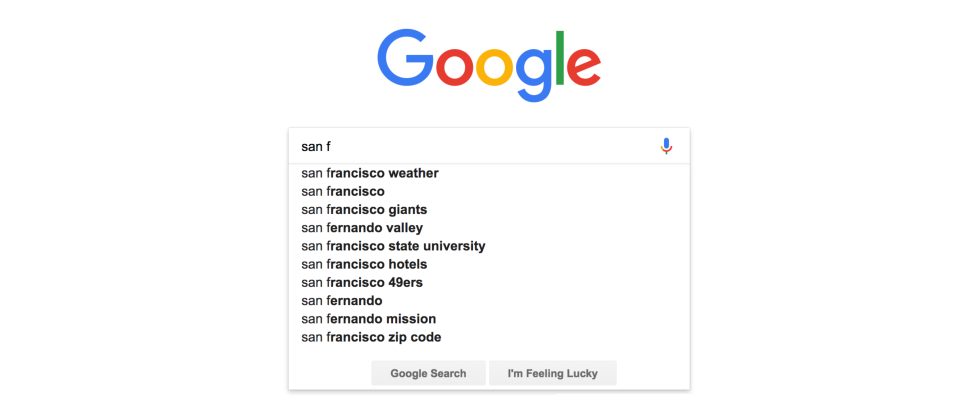
19. Add YouTube videos to your posts. Google often features videos in search results, and they own YouTube, so they favor YouTube videos over others.
20. Use Google’s PageSpeed Insights. With this tool, you can check your site’s loading speed and get recommendations to improve it.
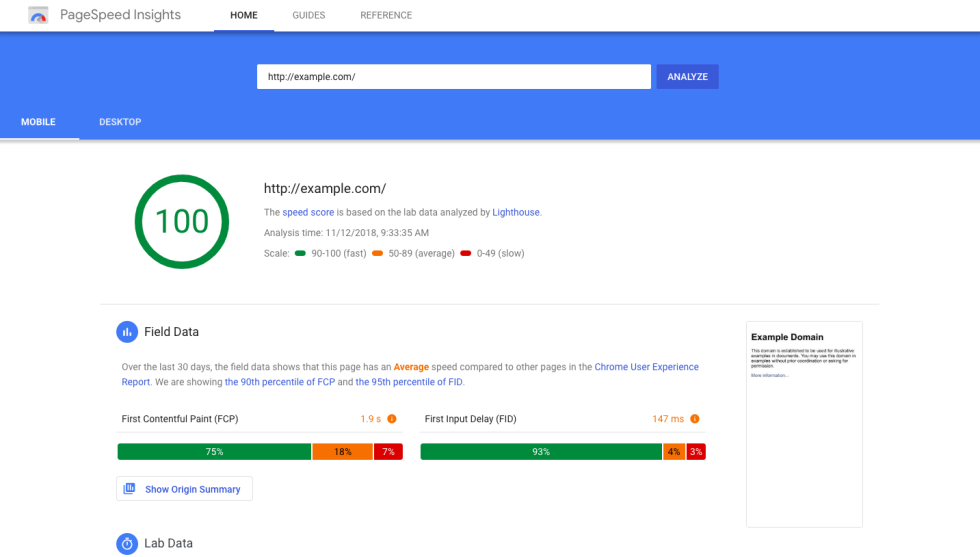
21. Use ALT text on your images. If your image has a purpose (and isn’t purely decorative), it’s best to add descriptive ALT tags with appropriate keywords so your images can rank in Google Image Searches.
How Long Do I Have to Wait to See Results?
This is the big burning question on everyone’s minds.
Unfortunately, there’s no way to predict how long it might take to see a change in rankings.
It can take anywhere from a few hours to a few weeks for Google to get your page indexed in the first place.
And after that, it could take up to several months to actually see a change.
What we CAN say is: the sooner you make these changes, the sooner you’ll see an improvement.

But, proceed with caution: If you do the wrong things to try and optimize your website, you can get penalized.
Getting penalized means one of your pages will suddenly drop in the rankings, giving up tons of traffic for your website.
And if Google deems your tactics to be REALLY bad, your whole site can get blacklisted. And there goes half of your traffic.
So here are 3 things you should NEVER do with your site:
Beware of Spammy SEO Tactics That Will Get You Penalized
- Don’t try to get too many backlinks too quickly. Google sees this as trying to game the system. Focus on a few quality guest posts every month, or better yet, write a really great post that gets organic shares and links that you didn’t ask for.
- Say no to low-quality content and purely AI-generated fluff. Google only ranks clear, informative, authoritative, valuable, well-written, and interesting content.
- Never pay for a link or join a group designed to share links with each other. If Google finds out about this, your entire site could be penalized.
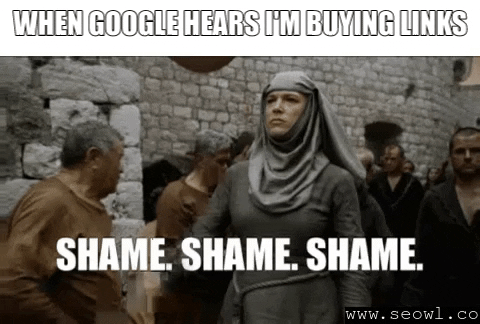
So you want to be careful, but you don’t need to agonize over this.
As long as you’re following the 21 strategies above, you’ll stay in the green, and your site can begin ascending up the rankings—bringing more highly-targeted traffic to your site.
Conclusion
In this article, we gave you 21 simple ways to improve your Google search rankings without getting penalized.
The average website gets half its traffic from organic search, so this is something no business should ignore.
If you’re looking for a marketing agency that can demystify SEO strategies and give you a personalized plan for getting more traffic from Google, Reel Axis can help. Drop us a line here.

